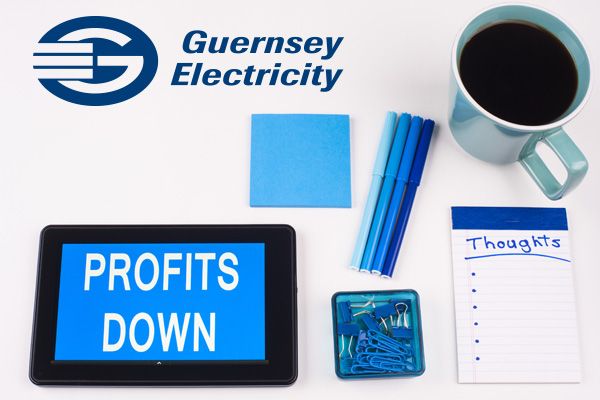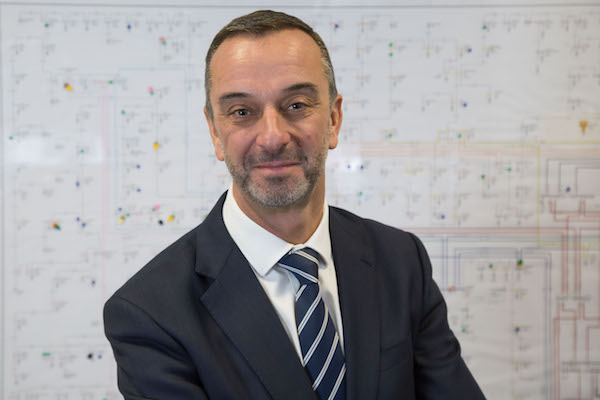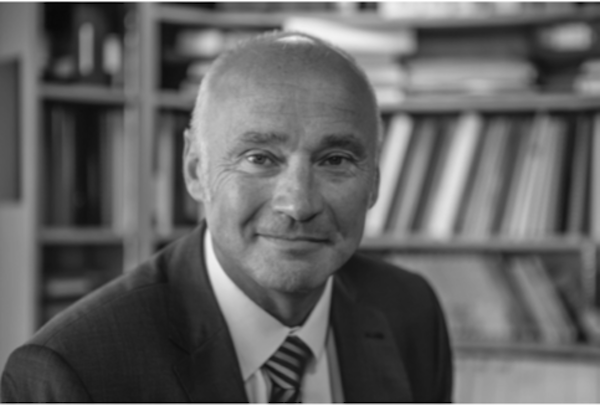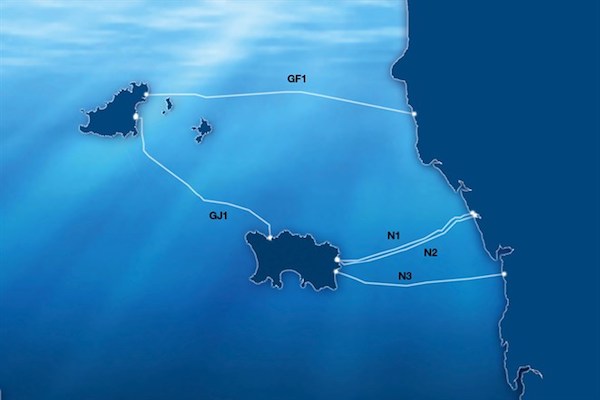

With profits down, Guernsey Electricity wants to change the way it charges us.
The year ending March 2018 saw the utility firm make an operating profit of £1.2m compared to £4.1m the year before.
The company's Chief Executive said "the main reason for the fall in operating profits year on year has been the effect of foreign exchange on our euro import costs. Post Brexit vote weakening of the £:€ exchange rate has meant that the cost of importation has increased by more than £2.6m year on year."
Alan Bates also said Guernsey Electricity is making "significant progress" in "transforming the operational performance of the business" since the end of the financial year 2017.
Mr Bates said Guernsey Electricity is "managing its significant asset base and continuing to successfully execute strategic projects. Indeed, our 3-year return on average net assets has been 4.2% which is in line with our long-term target and represents a key efficiency measure for a utility business."

The Chairman of the company, Ian Hardman, also blamed Brexit for the fall in profits, but like Mr Bates said Guernsey Electricity's financial position is in line with its targets.
"The 2017/18 financial year has seen further positive progress for Guernsey Electricity Limited (the “company”) and we are pleased to report that our 3-year operating profit target has been met. Profit for this year however, has reduced significantly compared to the last two years, due largely to the Brexit impact of adverse exchange rates as we purchase most of our electricity in Euros from France."
Mr Bates said he was "pleased to report" Guernsey Electricity had posted an operating profit for the last year of £1.2m, "despite an uncertain future." He warned of changes ahead for customers though.
"This level of profitability is significantly lower than previous years," he said, "and unfortunately below the level required to continue to fund necessary investments in the islands electricity infrastructure. This will become an issue as we plan for future capital investments. This financial year we have reinvested £8.4m of cash back into our business activities, whilst maintaining tariff levels unchanged for six years."
Mr Hardman also warned customers will face changes to their bills - although neither man outright said bills would be going up.
"The company has refocused and restructured to be more customer and commercial centric, thereby balancing relevant expectations and aspirations against affordability fairness. We are closely reviewing our tariff structure, as this has not moved with the changing environment, to ensure fairness for all customers," said Mr Hardman.

Pictured: Read Chairman Ian Hardman's comment and Guernsey Electricity's annual accounts here.
With both Mr Hardman and Mr Bates looking to the future, it's not yet clear what that means for customers but the utility firm appears to be looking at changing the tariffs our bills are based on.
It comes down to security of supply and the company's finances said Mr Bates.
"When considering future profitability and both security of supply and the distribution of electricity activities, the company is now questioning how it will continue to create revenues from, and therefore enable future investments in the necessary infrastructure. This is due to the inevitable changing patterns of electricity power flows moving from the traditional radial flow from the power station at the centre to the consumer at the edge, to a future model where power will flow from prosumer to prosumer (edge to edge). This is now being called “Peer to Peer” trading."
Mr Bates said that 'Peer to Peer' trading is now likely and will mean changes for the way Guernsey Electricity charges its customers.
"Guernsey Electricity has been working on this question and is now proposing a fundamental change in the charging for its services. The decisions on charging made to ensure cost reflectivity and recovery today will determine the electricity markets success over the medium-term.
"Therefore, for Guernsey Electricity the first part of the island’s transition does need to be innovation in the methods of charging for connection to, and the use of the electricity system."

Pictured: The power station on North Side.
The question of a second cable link with France has been raised again, with formal plans to spend millions of pounds on another connection looking increasingly necessary and likely.
Guernsey Electricity has, for the last decade "raised in its annual reports the conflict between decarbonisation and the affordability and security of low carbon solutions," said Mr Bates. "However, the rapidly improving economics of renewable power, supported by the growing prospect of cost effective electricity storage, has started to change the emphasis in this area. Commentary on the energy transition is concluding that these changes may well be different in that they are not being driven by technology (although enabled by it) and government policy, but rather by social imperative. The pace of change may therefore be a lot faster than historic precedent in the energy world."
Mr Bates said: "The direct connection to France through the GF1 project will enhance electricity security and increase the capacity to access affordable low carbon electricity. These improvements however have to be balanced against the cost of the project, and the potential impact on tariff evolution."

Pictured: Plans for another cable link with France have been explored in recent years.
GF1 is the name given to the proposed direct cable link with France. It wouldn't go through Jersey like Guernsey Electricity's current connections with the European grid.
With most of Guernsey's power coming through the cable link, the utility firm is keen to secure that electricity link.
Mr Bates acknowledges that there are a number of challenges ahead for the firm.
"However, the transition to this aspirational future for a small island needs to be strategically managed to ensure both economic stability within the market, and that the appropriate security of supply level is maintained. The current belief of Guernsey Electricity is that in this new decentralised world, the transmission and distribution networks will be used less and less in terms of the volume of electricity transported, becoming more of a backup source of power and storage."
He also acknowledged that more people will turn to alternative forms of power. But Guernsey Electricity will maintain control over those systems, which could prove "disruptive."
"There are a number of new electricity supply models which have the potential to be highly disruptive if provisions are not put in place to ensure a sustainable and secure island electricity network. This is a rapidly changing area where the desire of consumers for new services will drive the adoption of the new technology, and therefore the technological and commercial expectations on Guernsey Electricity.
"It is also clear that there is a social and commercial aspiration towards distributed power generation, covering everything from offshore macro wind farms to micro based rooftop solar systems. Guernsey should not underestimate the potential for the uptake of distributed renewables on the island," said Mr Bates.
Guernsey Electricity has a "vision for future tariffs" which it said will need to to:
Guernsey Electricity also said it's pleased with its customer service during the last year. It's annual report shows improvement in the numbers of 'minutes of power lost' said Mr Bates.
"In terms of our service to our customers, I am pleased to report a significant improvement in reliability with customers, both domestic and commercial, experiencing only 18.34 minutes loss of supply on average compared to 85.87 minutes lost during the previous financial year. This represents an excellent performance and would place us in the top quartile of our peer group."
The year before saw a spike in the number of minutes lost after the cable link with France failed on Liberation Day.
Read the 2017/18 Guernsey Electricity Annual Report here.
Pictured top: A dip in profits, but Guernsey Electricity was expecting it.
Comments
Comments on this story express the views of the commentator only, not Bailiwick Publishing. We are unable to guarantee the accuracy of any of those comments.